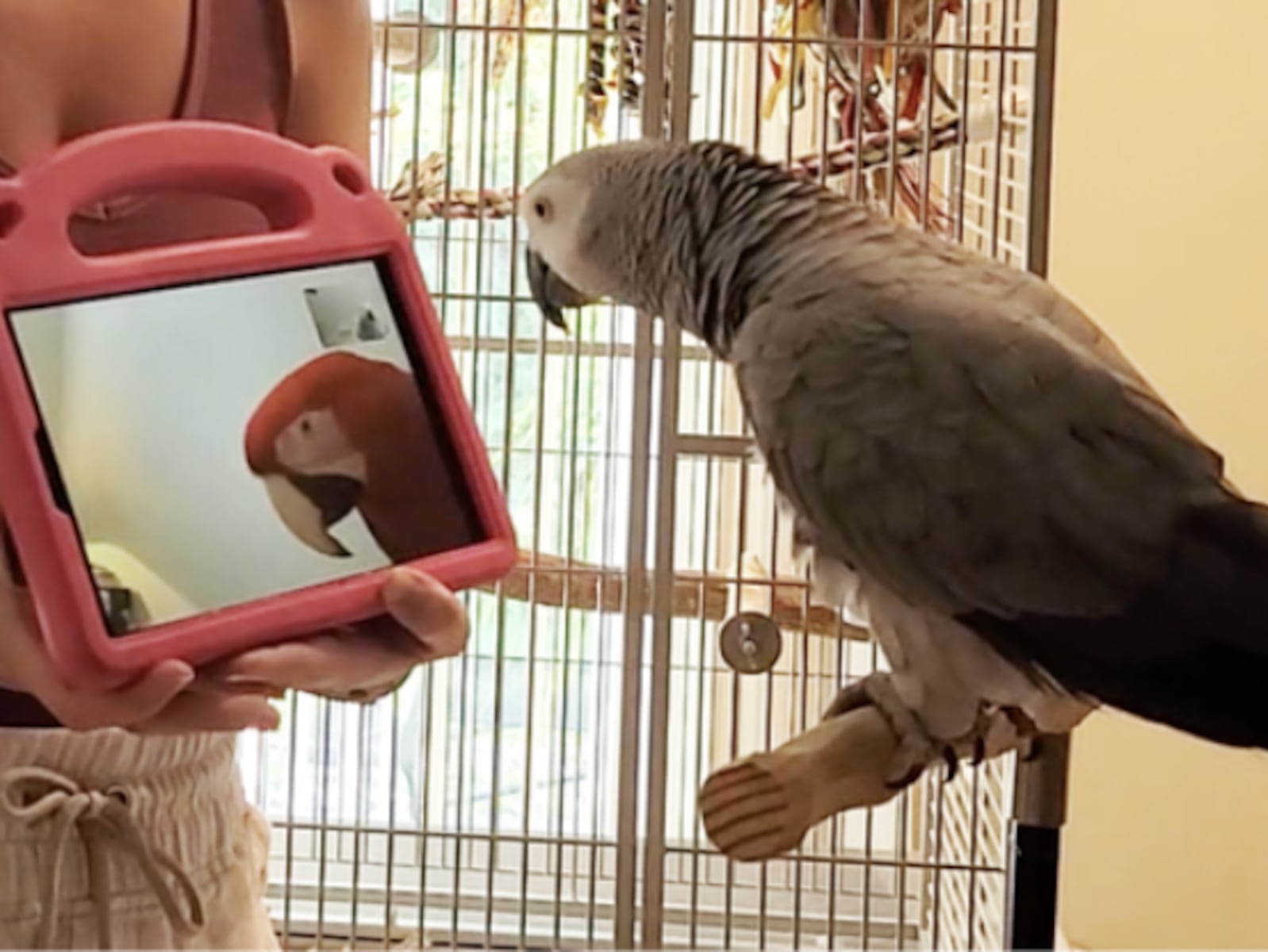A groundbreaking initiative led by researcher Rébecca Kleinberger allows animals to engage with technology in ways that enhance their lives. This innovative approach began with a hyacinth macaw named Sampson at the San Diego Zoo. When Sampson interacted with a device called the Joy Branch, he inadvertently triggered music, which he enjoyed so much that it attracted zoo visitors to his exhibit.
Kleinberger, now an assistant professor at Northeastern University, developed the Joy Branch in response to a request from Sampson’s caretaker. The goal was to create a tool that would enable the macaw to experience music autonomously. The result exceeded expectations, with Sampson using the device not only to listen to music but also to engage meaningfully with zoo visitors. Kleinberger emphasized the importance of allowing animals their own agency in interacting with technology.
Since the initial project in 2019, Kleinberger has expanded her focus on animal enrichment through her research lab, the Interspecies Technology for Enrichment and Research on Animal Connection and Togetherness (INTERACT) Animal Lab. Her work spans various species and environments, including pets, wildlife, and farm animals.
Kleinberger, who earned her master’s and doctoral degrees from the Massachusetts Institute of Technology, stated, “We can never really prove that an animal understands what they are doing or that they have control, but we can look into the engagement they have with it.” Her lab collaborates with experts in animal behavior to assess the impact of their technologies.
Current Research Projects and Collaborative Efforts
Kleinberger recently taught a course at Northeastern University focused on designing technology for animals, which involved 16 students from Northeastern, as well as participants from MIT and Harvard University. Some students continued their involvement over the summer, helping to implement and test technologies at Zoo New England, which includes the Franklin Park Zoo and Stone Zoo.
In addition to the zoo projects, Kleinberger is collaborating with Tandem Vet Care, a veterinary clinic, to investigate ways to reduce stress in cats during veterinary visits. While she could not disclose specific details about these ongoing projects, she mentioned that findings will be published in the coming months.
Kleinberger’s lab has gained attention for its playful and engaging projects. In partnership with the University of Glasgow, her team conducted a three-month study examining how 20 pet parrots interacted with touchscreen games. The research, part of a paper set to be published in 2024, aims to explore the potential of such games for animal enrichment and tailoring them to meet the tactile needs of parrots.
Unique Approach to Animal Technology
Kleinberger’s INTERACT Animal Lab stands out from other research facilities that focus on testing animal intelligence or behavior. “We’re not there to test them. We’re there to try to see how we can improve their life,” she explained. The lab prioritizes ethical considerations in its work, collaborating with accredited zoos and ensuring high standards of animal welfare.
Kleinberger highlighted the importance of educating the public and working closely with zookeepers to understand the needs of animals. She acknowledged challenges faced by the farming industry, stressing the need to create meaningful solutions rather than superficial fixes.
The responsibility to enrich animal lives, according to Kleinberger, stems partly from the ways humans have harmed their natural habitats. She believes technology can play a crucial role in offering solutions. “There is so much potential because so much of the technology is there,” she asserted, noting the need for frameworks to assess the impact of technological interventions on animals.
Although there has been a surge in pet technology in recent years, such as sensors and cameras that allow communication with pets, Kleinberger pointed out that much of this technology has not been rigorously evaluated for its effects on animals. Often, these devices are designed with human benefits in mind rather than prioritizing the well-being of animals.
In her work, Kleinberger aims to flip the narrative, focusing on how to adapt technology to serve animal needs rather than expecting animals to conform to human standards. Her innovative approach promises to reshape interactions between technology and wildlife, paving the way for a future where animals can thrive through thoughtfully designed technological tools.







